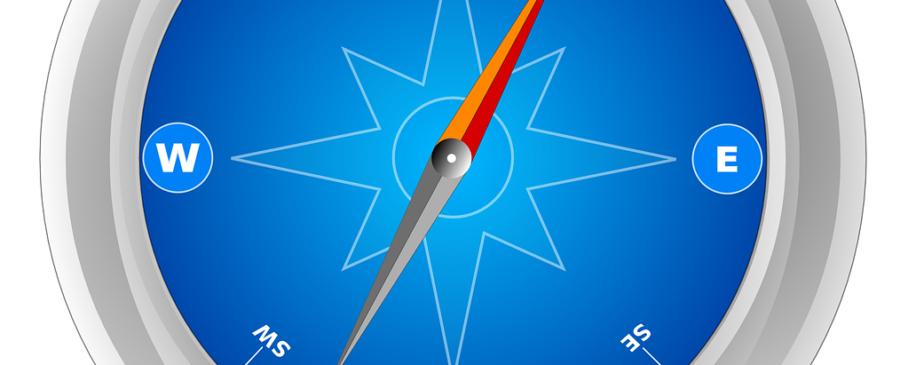Persona and Story Development with C.L.O.S.A.T

When I was at Emerson college back in 2002 I took a screen writing and concept development course taught by Martie Cook. One of my big takeaways from that class, and one that I still use today, is the concept of developing stories with C.L.O.S.A.T. cards.
C.L.O.S.A.T. was essentially persona development before persona development was a thing. It’s also the basis for your content and the stories you tell.
So what is C.L.O.S.A.T. and why should you care? It stands for: character, location, object, situation, action, theme. You should care because it’s will help you with everything you write and the audience you reach. You’re building the ideal customer, learning where they hang out, what they care about, and how to reach them.
How do you build out these attributes? Research, talk to existing customers, or just use your best judgement of who you think they are. As you get more information you can add to the cards or change them to align with what you learn. It’s an evolution, not a once and done exercise.
- Character:
- Give them a name, define what they do for work, are they a senior executive or a sales clerk, are they still in college, middle aged, retired senior citizen. As many descriptors and you can come up with to clearly define the “person type”. Be general but specific. For screenwriting it helped to be very descriptive because it helped define the personality better, so if the character was in a situation you had a better idea of how they’d react. Remember, you’re trying to create the ideal, not the generic audience.
- For example: Jessica is a 25 year old waitress who is a creature of habit that wears red lipstick, has her hair tied back in a ponytail, and put on the same pair of brown flats every day. She’s optimistic, but introverted so she tends to keep to herself outside of work. She lives alone in a studio apartment in the city. Jessica takes leftover vegetables from the restaurant each night that she feeds to her pet iguana….
- You can continue building out the persona with more details, habits, education, etc… You might not think every attribute is important, but it might help you develop a new piece of content.
- For example: Jessica is a 25 year old waitress who is a creature of habit that wears red lipstick, has her hair tied back in a ponytail, and put on the same pair of brown flats every day. She’s optimistic, but introverted so she tends to keep to herself outside of work. She lives alone in a studio apartment in the city. Jessica takes leftover vegetables from the restaurant each night that she feeds to her pet iguana….
- Give them a name, define what they do for work, are they a senior executive or a sales clerk, are they still in college, middle aged, retired senior citizen. As many descriptors and you can come up with to clearly define the “person type”. Be general but specific. For screenwriting it helped to be very descriptive because it helped define the personality better, so if the character was in a situation you had a better idea of how they’d react. Remember, you’re trying to create the ideal, not the generic audience.
- Location:
- Where are they located? Are you focusing on the north east, the United States? Are they in an office building, homeowner, renter…? Is it hot weather or cold? Do they work at a small company or a large multinational?
- Object/Situation:
- Do they use a mobile phone for most of their research, read the newspaper, look for expert opinion? Do they listen to a friend for recommendations or are they on the cutting edge and a leader in their field? Are they on Facebook, Instagram or Pinterest? Do they consume most of their news on LinkedIn or a niche forum? Do they work remote with a chromebook?
- Action:
- What makes them take action? Are they just looking for a commodity item where the best price wins? Do they need to improve sales results and you have a product that answers that need? Is it a long term commitment or a simple purchase decision? What type of person is likely to take the action, are you reaching or targeting the decision maker?
- Theme:
- Fill in the persons identity further. What do they like to do in their spare time, what drives them, do they have a family or are they single? Anything you can use to fill in the theme of this persons buying behaviors.
Take a look at each one of those areas and see if you can apply it to the type of person your business is trying to reach. In the “marketing world”, these descriptions are called personas and they can help to guide the content, blog posts, and stories that you write. Having a good description of the “ideal customer” you’re trying to reach will make your marketing efforts, branding strategy, and ultimately sales that much easier to achieve.
This process helps you in all aspects of marketing because it helps you understand what you should be writing about, the type of visuals a customer likes and more.
Have you created a marketing persona before? Have you had success with them? Have you created something similar to find and understand your target audience? Did it help with creating a relationship and engaging on Facebook or other social media?
 Purple Fish Marketing
Purple Fish Marketing
Recent Comments